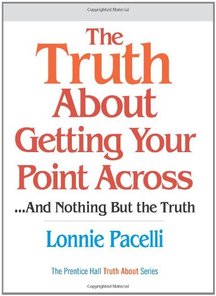Within a few months of my open door policy, I saw my own productivity drop and my frustration level rise because I kept getting interrupted by people taking me up on my open-door policy. My open-door policy soon turned into a series of random interruptions that caused me to not get my stuff done. I came to recognize that I needed to be accessible to people but that I could control the accessibility through scheduled time. Open-door means be accessible, not come in whenever you want.
Also, “be accessible” doesn’t mean you’ll just see anyone about anything. Depending on your level in the organization and your degree of influence, you can spend the vast majority of your time meeting with people that will either want to sell you something or will want an audience to air their personal grievances. When you get requests for your time, it’s a good idea to ask what the requestor would like from you. You can then make an assessment of whether it is appropriate to meet with the requestor or to suggest another person the requestor should contact.
The “be accessible policy” works, it just takes some discipline on your part. Do the following to help the be accessible policy work for you:
Being available to talk with people or help them through their problems is a wonderful thing. Don’t feel obligated to post an open-door policy. Let people know you’re accessible. Also let them know they should work to schedule time with you so you can give them your undivided attention. You’ll accomplish the same goals as an open-door policy and will get your own work done to boot.
Lonnie Pacelli
Keynote Speaker | Board Director | Autism Advocate | Author | Project Management Expert | Microsoft/Accenture Veteran See his books on Amazon.
0 Comments
Leave a Reply. |
Topics
All
Reprints
Contact Lonnie about article reprints. Please specify article you wish to reprint. Backlist
See Lonnie's Amazon Author Page Archives
July 2024
|
Lonnie Pacelli - Building Thriving Leaders™
Insightful | Creative | Direct Advice to Help Leaders Help Themselves
Keynote Speaker | Board Director | Autism Advocate | Author | Project Management Expert | Microsoft/Accenture Veteran
See his books on Amazon
Insightful | Creative | Direct Advice to Help Leaders Help Themselves
Keynote Speaker | Board Director | Autism Advocate | Author | Project Management Expert | Microsoft/Accenture Veteran
See his books on Amazon
Services |
About
|
© COPYRIGHT 2019. ALL RIGHTS RESERVED.
We are a participant in the Amazon Services LLC Associates Program, an affiliate advertising program designed to provide a means for us to earn fees by linking to Amazon.com and affiliated sites.
|


 RSS Feed
RSS Feed